
Find Help
More Items From Ergsy search
-
Can you get any prion diseases from blood transfusion?
Relevance: 100%
-

What diseases can be spread by blood transfusions?
Relevance: 64%
-
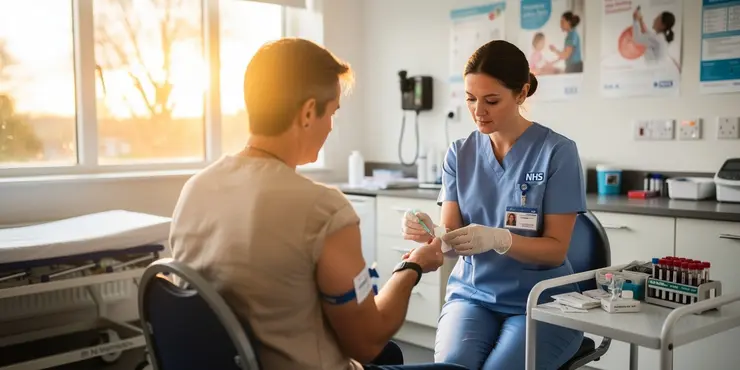
Is Chagas disease a concern with blood transfusions?
Relevance: 62%
-
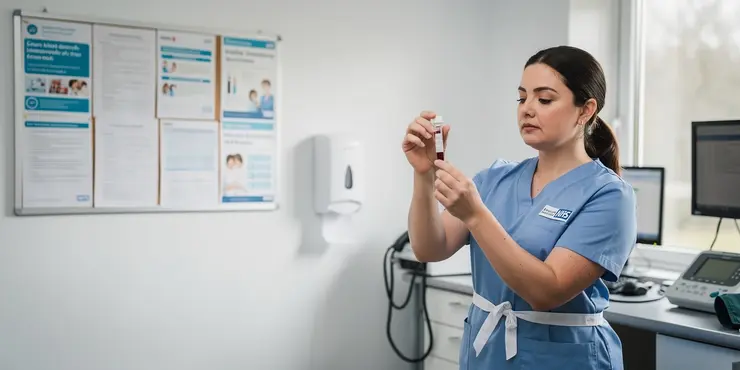
What is the most common disease transmitted by blood transfusion?
Relevance: 59%
-
What is a blood transfusion?
Relevance: 56%
-
Blood Product Transfusions
Relevance: 53%
-
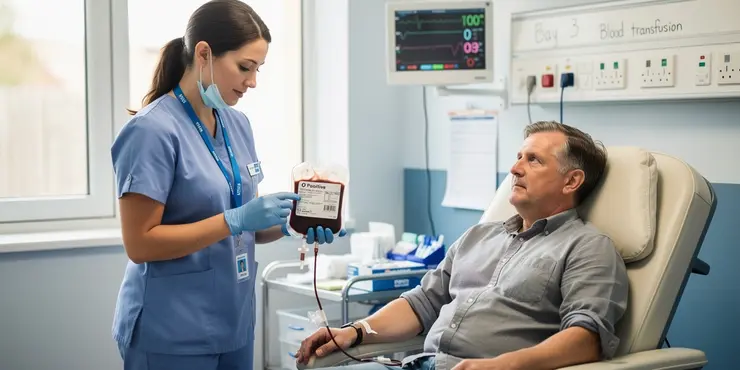
Blood Transfusion
Relevance: 53%
-
Why might someone need a blood transfusion?
Relevance: 53%
-
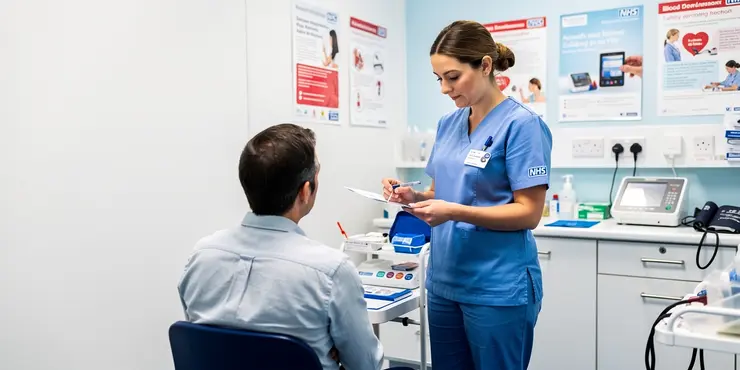
What measures are taken to prevent disease transmission in blood transfusions?
Relevance: 53%
-
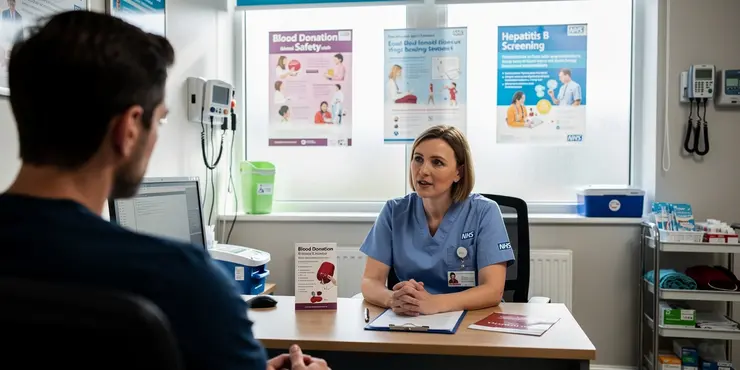
Is Hepatitis B a risk in blood transfusions?
Relevance: 52%
-

Are there risks associated with blood transfusions?
Relevance: 51%
-
What are some common reasons blood transfusions are needed?
Relevance: 51%
-
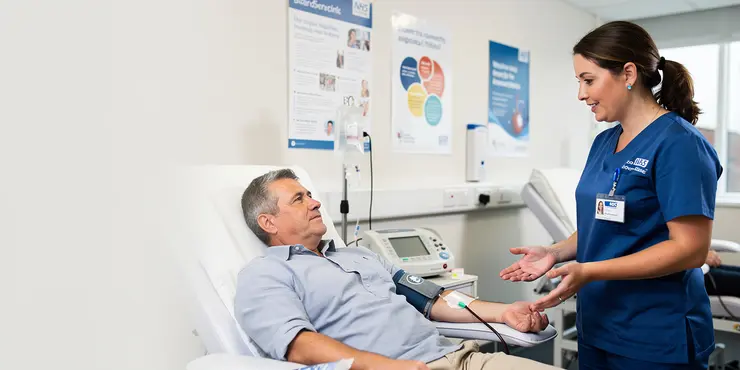
Are there any parasites that can be transmitted through blood transfusions?
Relevance: 50%
-

Is HTLV a risk in blood transfusions?
Relevance: 50%
-
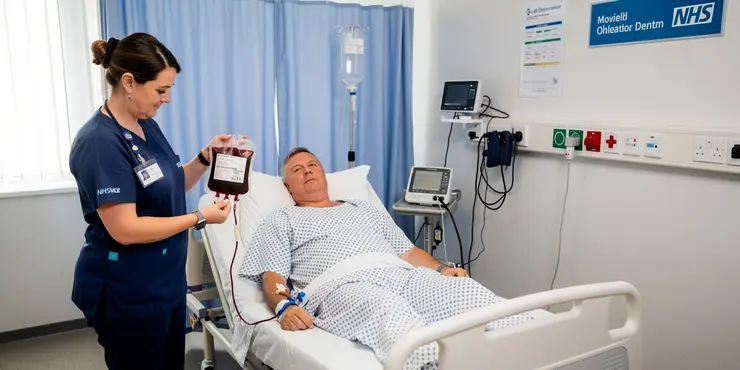
What types of blood products can be transfused?
Relevance: 49%
-
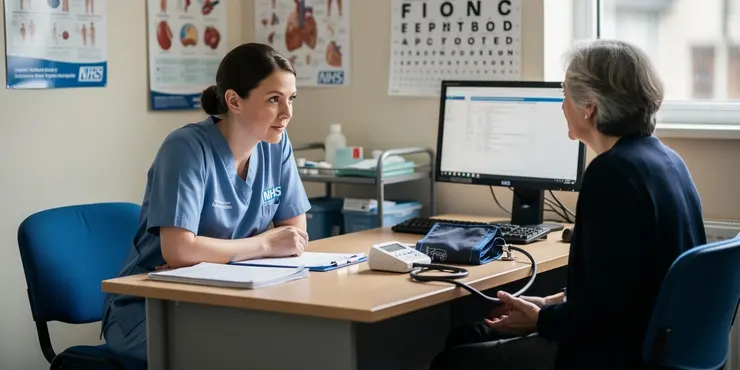
Can syphilis be transmitted via blood transfusion?
Relevance: 49%
-
Is there an age limit for receiving blood transfusions?
Relevance: 48%
-
Can certain medical conditions prevent receiving blood transfusions?
Relevance: 48%
-
Is malaria still a concern for blood transfusion safety?
Relevance: 48%
-
How long does a blood transfusion take?
Relevance: 47%
-
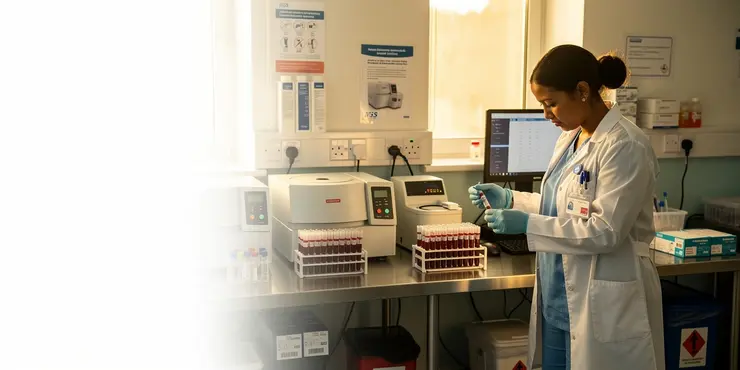
How do healthcare providers match blood for transfusions?
Relevance: 46%
-
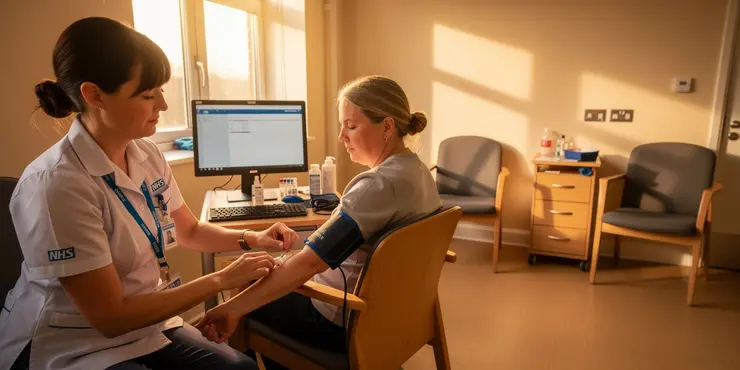
How is blood screened to prevent disease transmission?
Relevance: 46%
-
Is Zika virus screened for in blood transfusions?
Relevance: 46%
-
Can bacterial infections be transmitted through blood transfusion?
Relevance: 46%
-
Can HIV be transmitted through blood transfusions?
Relevance: 46%
-
Can Dengue fever be transmitted through blood transfusions?
Relevance: 46%
-
Can someone have a reaction to a mismatched blood transfusion?
Relevance: 45%
-
Can people of any blood type receive a transfusion of any blood type?
Relevance: 45%
-
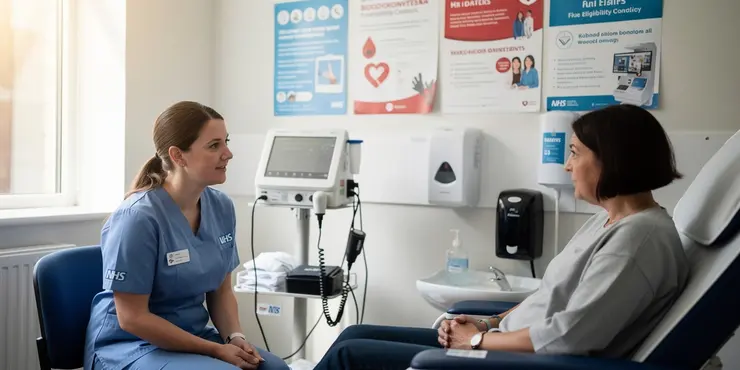
Can COVID-19 be transmitted through blood transfusions?
Relevance: 44%
-

How do doctors determine how much blood is needed for a transfusion?
Relevance: 44%
-
Is blood used for transfusions safe?
Relevance: 40%
-
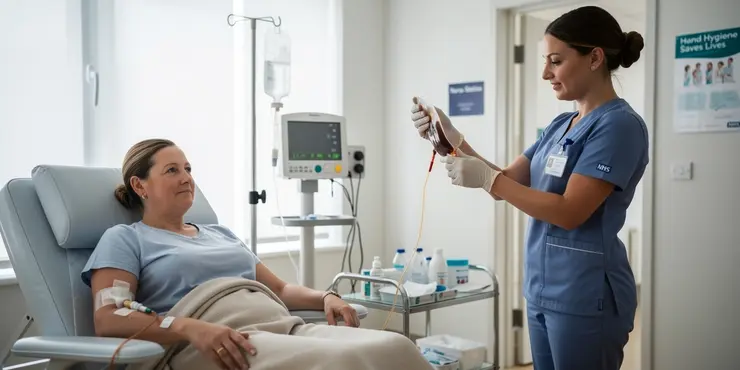
What is plasma, and why might it be transfused?
Relevance: 39%
-
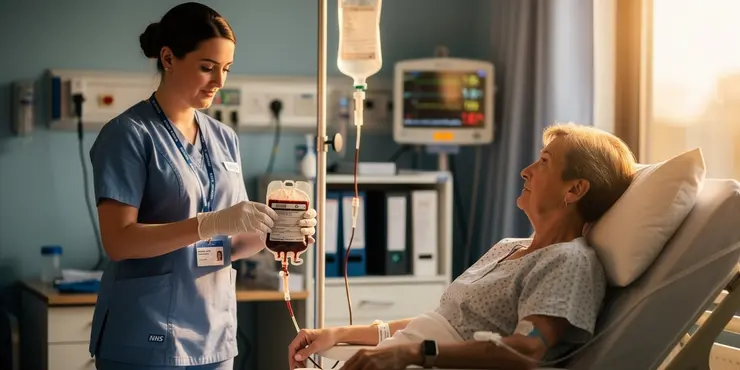
Can cytomegalovirus (CMV) be spread through transfusions?
Relevance: 35%
-
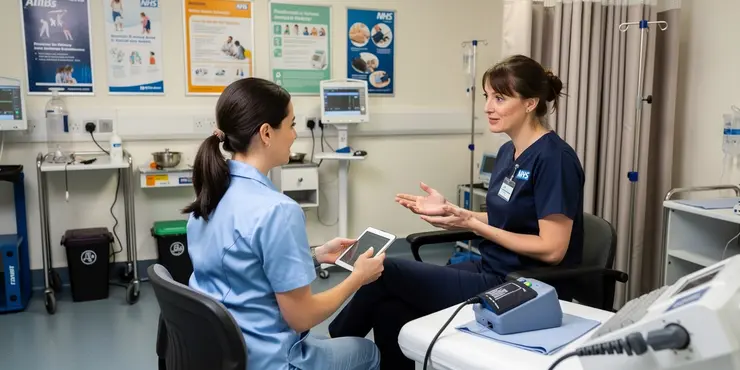
Are there global differences in screening for blood transfusions?
Relevance: 35%
-
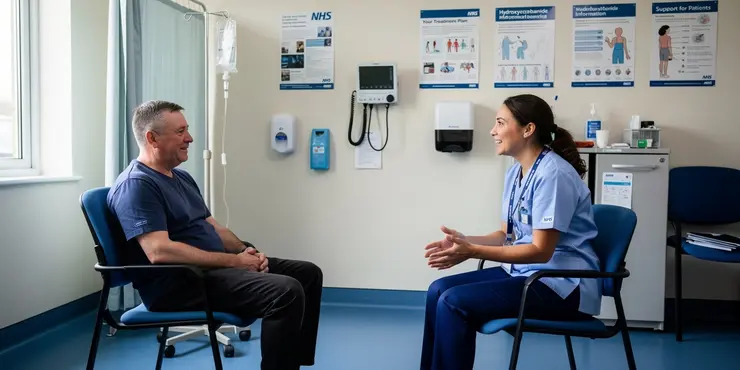
How is sickle cell disease treated?
Relevance: 34%
-
Why is blood donation history important in preventing disease transmission?
Relevance: 34%
-
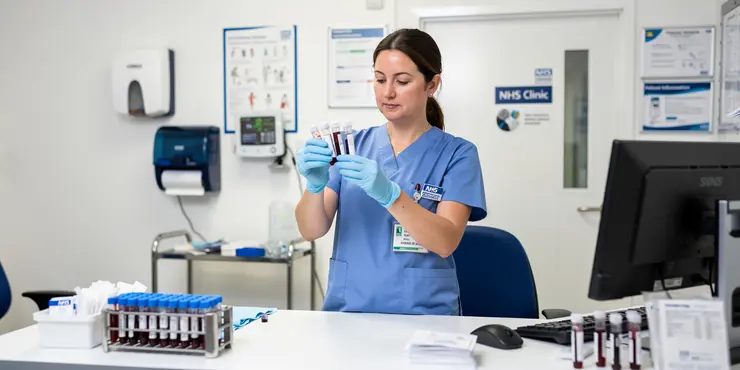
What other viruses are tested for in blood donations?
Relevance: 33%
-
What should a patient expect after a blood transfusion?
Relevance: 32%
-
What kind of follow-up care is needed after a blood transfusion?
Relevance: 31%
-

What is sickle cell disease?
Relevance: 30%
Understanding Prion Diseases
Prion diseases, also known as transmissible spongiform encephalopathies (TSEs), are a group of rare, progressive neurodegenerative disorders that affect both humans and animals. They are caused by the abnormal folding of prion proteins in the brain. In humans, diseases such as Creutzfeldt-Jakob Disease (CJD) fall under this category. These conditions are invariably fatal and currently, no cure exists.
Blood Transfusions and Prion Diseases
The potential risk of transmitting prion diseases through blood transfusions has been a topic of concern, especially since the outbreak of variant Creutzfeldt-Jakob Disease (vCJD) in the UK during the 1990s. vCJD is linked to the consumption of beef infected with Bovine Spongiform Encephalopathy (BSE), commonly known as mad cow disease. Due to the similarities in the nature of blood donation systems and medical protocols across different countries, the implications of these findings are relevant to a UK audience.
Evidence of Transmission Risk
There is scientific evidence suggesting that prion diseases can be transmitted through blood transfusions. In the UK, a small number of cases have been documented where patients have likely contracted vCJD following transfusions from donors who later developed the disease. These incidents have prompted rigorous screening processes and precautionary measures within the National Health Service (NHS) Blood and Transplant service to mitigate risks.
Regulatory Measures in the UK
The UK has implemented several precautions to prevent the transmission of vCJD through blood products. For instance, since the late 1990s, individuals who have received blood transfusions are no longer eligible to donate blood. Additionally, the UK sources most of its plasma products from countries where BSE has not been detected, and it utilizes pathogen reduction technologies to increase the safety of blood supplies. Furthermore, synthetic alternatives to human-derived blood products are frequently used to lower the risk of any potential transmission.
Public Health and Safety
The UK government and health agencies, such as Public Health England (now part of the UK Health Security Agency), continue to monitor the situation closely, valuing research to understand prion diseases better and to develop preventive measures. They also support advancements in diagnostic methods to identify infections earlier and more accurately, although current testing technologies for prion diseases are still limited.
Conclusion
While the risk of contracting a prion disease from a blood transfusion in the UK is extremely low due to stringent regulatory controls and safety enhancements, it remains a serious concern given the potential for such diseases to be transmitted through this route. Continuous vigilance and adherence to safety protocols are essential to prevent any future instances of transmission, ensuring that the UK’s blood supply remains as safe as possible.
Understanding Prion Diseases
Prion diseases are illnesses that make the brain stop working properly. They are very rare but serious. These diseases happen because prion proteins in the brain fold the wrong way. People and animals can both get these diseases. An example in people is called Creutzfeldt-Jakob Disease (CJD). Sadly, there is no cure and they always lead to death.
Blood Transfusions and Prion Diseases
People worry that prion diseases might spread through blood transfusions. This concern grew big in the UK in the 1990s because of a disease called variant Creutzfeldt-Jakob Disease (vCJD). vCJD came from eating beef that had another disease called mad cow disease. Countries like the UK care a lot about this because they have similar blood donation processes.
Evidence of Transmission Risk
There is proof that prion diseases can spread through blood transfusions. In the UK, a few people got vCJD after receiving blood from people who later became sick with the disease. Because of this, there are now strict checks in place. The National Health Service (NHS) takes special steps to keep blood safe.
Regulatory Measures in the UK
In the UK, there are rules to stop the spread of vCJD through blood. Since the late 1990s, people who have had blood transfusions cannot give blood anymore. The UK also gets most of its plasma from safe countries. They use special treatments to clean the blood and use fake blood substitutes to make things even safer.
Public Health and Safety
The UK government and health groups keep a close watch on prion diseases. They support research to learn more and find ways to stop these diseases. They also work on improving tests to find prion diseases sooner, although it is still a challenge.
Conclusion
The chance of getting a prion disease from a blood transfusion in the UK is very low. This is because of the strict rules and safety checks in place. Still, it is very important to stay careful and follow all safety steps to keep the UK's blood supply safe.
Frequently Asked Questions
What is a prion disease?
Prion diseases are a group of rare, fatal brain disorders that can affect both humans and animals. They are caused by prions, which are infectious agents made of protein.
Can prion diseases be transmitted through blood transfusions?
Yes, prion diseases, particularly variant Creutzfeldt-Jakob disease (vCJD), have been transmitted through blood transfusions.
What is variant Creutzfeldt-Jakob disease (vCJD)?
vCJD is a human prion disease linked to consuming beef contaminated with the bovine prion, which causes bovine spongiform encephalopathy (BSE), or 'mad cow disease.'
How is vCJD transmitted through blood transfusions?
vCJD can be transmitted if a person receives blood from a donor who is infected with the prion that causes vCJD.
Are there screening tests for prions in blood donations?
Currently, there are no routine screening tests for prions in blood donations, but risk-reduction strategies are in place.
What measures are in place to prevent prion transmission through blood transfusion?
Measures include donor deferral policies, such as excluding donors who have lived in the UK during the BSE outbreak.
Has there been a documented case of prion transmission through blood transfusion?
Yes, there have been a few documented cases of vCJD transmission through blood transfusions.
Is the risk of acquiring a prion disease from a blood transfusion high?
The risk is considered extremely low, especially with current donor screening and deferral policies.
Have there been any prion diseases other than vCJD transmitted through blood transfusion?
To date, vCJD is the only prion disease confirmed to have been transmitted through blood transfusions.
Can prions be eliminated from blood or blood products?
Research is ongoing, but as of now, there is no established method for completely removing prions from blood or blood products.
Who is at risk of transmitting vCJD through blood donation?
Donors who have been exposed to the BSE agent, especially those who have lived in the UK during the BSE peak, are at risk.
What are the symptoms of vCJD?
Symptoms include psychiatric changes, behavioral alterations, impaired memory, and movement abnormalities, progressing to severe neurological decline.
How long is the incubation period for vCJD?
The incubation period for vCJD can be many years, often a decade or longer, which complicates detection efforts.
Is there a cure for vCJD or other prion diseases?
There is currently no cure for vCJD or any other prion disease. Treatment is focused on alleviating symptoms and providing supportive care.
How can one reduce the risk of vCJD transmission through blood donation?
Following donor eligibility criteria and deferring donors with potential exposure to BSE are key strategies to minimize risk.
Are blood products equally risky concerning prion transmission?
Most cases have been associated with red blood cell transfusions, but other components like plasma cannot be completely ruled out.
Is it safe to donate blood?
Yes, donating blood is generally safe. Blood donation centers follow strict guidelines to ensure the safety of both donors and recipients.
How does the blood donation process ensure safety against prion diseases?
Safety is ensured by adhering to eligibility criteria, using sterile equipment, and testing donations for various infectious diseases (though not directly for prions).
What ongoing research exists regarding prion detection in blood?
Research is focused on developing sensitive and specific tests for detecting prions in blood, as well as understanding prion biology better.
What should I do if I'm concerned about prion diseases and blood transfusion?
Discuss your concerns with your healthcare provider, who can provide information on risk and safety measures.
What is a prion disease?
A prion disease is a sickness that harms the brain. It is caused by tiny proteins called prions. They make the brain stop working properly.
If you need help understanding, you can:
- Ask a teacher or parent to explain it to you.
- Watch a simple video about prion diseases.
- Use a picture dictionary to learn new words.
Prion diseases are serious brain problems that can happen to people and animals. These diseases are rare and can be deadly. They are caused by tiny germs called prions. Prions are made of protein.
Can prion diseases spread through blood transfusions?
Prion diseases are illnesses that affect the brain. They are rare and serious.
Blood transfusions are when you get blood from another person to help you feel better.
Scientists think prion diseases might spread through blood transfusions. But it does not happen often.
If you have questions, ask your doctor. They can help you understand more.
Yes, prion diseases can spread through blood transfusions. One example is called variant Creutzfeldt-Jakob disease, or vCJD.
Here are some ways to help understand this better:
- Use simple words and sentences when learning about new things.
- Look at pictures or videos about the topic.
- Ask someone to explain it to you in their own words.
- Talk about what you learned with friends or family.
What is variant Creutzfeldt-Jakob disease (vCJD)?
vCJD is a brain illness. It makes the brain stop working properly. It is a serious disease.
People who have vCJD might have memory problems. They might feel confused.
vCJD can make people feel sad or worried.
It is important to see a doctor if you think someone has vCJD.
Tools like picture books can help understand more about vCJD.
vCJD is a sickness people can get from eating beef that has bad stuff in it. This bad stuff comes from cows that have a disease called 'mad cow disease.'
How does vCJD spread through blood transfusions?
vCJD is a disease that can be spread through blood. If someone has vCJD and donates their blood, they can give the disease to another person who receives their blood in a transfusion.
To stay safe, special tests and checks are done on blood donations. This helps keep vCJD from spreading. It's important for people who give blood to follow health guidelines.
If you have questions, tools like pictures or videos can help. Talking to a doctor or nurse is also a good idea. They can explain things in a way that makes sense.
You can get vCJD if you get blood from someone who has the germs that cause vCJD.
Can we test for prions in blood donations?
Prions are tiny things that can make us sick. Scientists are working on tests to find prions in blood donations. Right now, there aren't any tests that work for sure. But they are trying hard to make one soon.
If you have trouble reading big words, you can ask someone for help. You can also use a dictionary to understand words you don't know.
Right now, there are no regular tests to check for prions in blood donations. But there are ways to help lower the risk.
How do we stop the spread of prions in blood transfusions?
Here is how we keep blood safe from prions: 1. **Careful Donor Checking**: We ask blood donors questions. We check their health and travel history. This helps us see if it is safe to use their blood. 2. **Blood Testing**: We test the blood for signs of prions. This makes sure the blood is safe before giving it to someone else. 3. **Using Special Filters**: Some places use special filters. Filters can catch prions and stop them from getting into the blood we use for transfusions. 4. **Research and Rules**: Scientists and doctors are always learning more. They make new rules to keep blood transfusions safe. If something is hard to understand, ask someone for help or use tools that read text out loud.There are rules to keep blood safe. One rule is some people can't give blood because of where they lived. For example, people who lived in the UK when people were getting sick from BSE can't give blood.
Can prions be passed on through a blood transfusion?
Yes, there have been a few times when a disease called vCJD was passed on from one person to another through blood transfusions.
Can you get prion disease from a blood transfusion easily?
The risk is very low. This is because of the way donors are checked and chosen.
Can other prion diseases spread through blood transfusions like vCJD?
Prion diseases are rare brain illnesses.
"vCJD" is a type of prion disease.
We want to know if there are other prion diseases that can spread through blood transfusions.
If reading is hard, try:
- Reading aloud with someone.
- Listening to an audiobook.
- Using a dictionary for hard words.
So far, vCJD is the only illness like this that we know can be passed on through blood donations.
Can we take prions out of blood?
Scientists are still studying this, but right now, there is no sure way to take out prions from blood.
Who can spread vCJD by giving blood?
People who have given blood and have been around the BSE disease are in danger. This is especially true if they lived in the UK when BSE was a big problem.
It is important to understand the meaning of "BSE." It stands for a disease that can harm animals and people if they eat bad meat.
Ask someone to help you read this if it is hard to understand. You can also use tools that read text out loud or make words bigger.
What are the signs of vCJD?
vCJD is a rare illness. Here are some signs to look out for:
- Feeling sad or angry a lot.
- Problems with walking or moving.
- Trouble seeing things clearly.
- Not sleeping well.
- Hard to remember things.
If you or someone you know has these signs, talk to a doctor.
It can help to use pictures and simple words when talking about this topic.
Signs you might notice are changes in how a person feels or acts. They might behave differently, have trouble remembering things, and move in a strange way. Over time, these problems can get much worse.
For help, you might try using picture guides, routine reminders, or storyboards to explain what's happening. These tools can make it easier to understand and remember things.
How long does it take for vCJD to show symptoms?
vCJD is a sickness that can take many years to show up. It can sometimes take 10 years or more. This makes it hard to find out if someone has it early.
To help understand health information, you can:
- Use simple words and sentences.
- Use pictures to explain ideas.
- Ask someone you trust to read it with you.
- Break information into small parts.
Can doctors make vCJD or other prion diseases go away?
Right now, there is no way to completely fix vCJD or other prion diseases. The doctors try to make people feel better and help them with their symptoms.
How can you make blood donation safer from vCJD?
Here are ways to keep blood donation safe:
- Check your health before giving blood. Feel well? No fever or sickness?
- The blood bank asks questions about your health. Answer honestly.
- If you have traveled to places where vCJD is common, tell the blood bank.
- Waiting times may apply if already donated blood. Follow guidelines.
Tools to support you:
- Bring a friend or family member when donating.
- Use simple language guides or videos about blood donation.
- Ask staff to explain the process clearly if unsure.
To keep things safe, it's important to check if people giving blood meet the rules. Also, we should ask people not to give blood if they might have been around BSE. This helps keep everyone healthy.
Is there the same risk of prions in all blood products?
Prions are tiny germs that can make you sick. We want to know if all blood products are as risky when it comes to prions.
If you find reading hard, try using tools that read the text out loud, use a screen with fewer distractions, or ask someone to explain the text to you.
Most of the time, this happens when people get red blood cells during a transfusion. But it can also happen with plasma, so we can't say plasma is always safe.
Is it okay to give blood?
Yes, it is safe to give blood. Here are some things to know:
- You will be checked by a nurse before you donate.
- You use a new, clean needle each time.
- Giving blood only takes a short time.
- You can rest and have a drink afterwards.
If you feel unsure, talk to a nurse or doctor. They can help you understand.
You can use pictures or videos to learn more.
Yes, it is safe to give blood. Blood donation places follow strict rules to keep people who give blood and get blood safe.
How does giving blood stay safe from prion diseases?
When you give blood, doctors make sure it is safe. They clean and check everything. This helps keep away prion diseases. Prion diseases are very rare. Here is how they keep the blood safe:
- Screening: They ask questions about your health. This helps to see if it is safe for you to give blood.
- Testing: They test your blood to make sure it is healthy.
- Tools: They use clean needles and bags. This stops the spread of prion diseases.
If you are worried, you can ask the doctor to explain. You can also use books or videos to learn more. Always make sure to ask questions if you don’t understand.
Safety is kept by following rules, using clean tools, and checking donations for sicknesses (but not directly for all germs).
What are scientists doing to find prions in blood?
Scientists are working on finding good tests to find prions in blood. They are also trying to learn more about prions.
What if I'm worried about prion diseases and getting blood?
If you are worried about prion diseases and blood, here are some things you can do:
- Talk to your doctor or nurse. They can answer your questions.
- Ask if there are other kinds of treatments or options for you.
- Learn about prion diseases by reading easy books or watching videos for kids. This can help you understand better.
If it helps, you can also:
- Write down your questions before talking to your doctor.
- Take someone with you to appointments for support.
Talk to your doctor if you are worried. They can tell you how to stay safe.
Useful Links
This website offers general information and is not a substitute for professional advice.
Always seek guidance from qualified professionals.
If you have any medical concerns or need urgent help, contact a healthcare professional or emergency services immediately.
Some of this content was generated with AI assistance. We’ve done our best to keep it accurate, helpful, and human-friendly.
- Ergsy carfully checks the information in the videos we provide here.
- Videos shown by Youtube after a video has completed, have NOT been reviewed by ERGSY.
- To view, click the arrow in centre of video.
- Most of the videos you find here will have subtitles and/or closed captions available.
- You may need to turn these on, and choose your preferred language.
- Go to the video you'd like to watch.
- If closed captions (CC) are available, settings will be visible on the bottom right of the video player.
- To turn on Captions, click settings .
- To turn off Captions, click settings again.
More Items From Ergsy search
-
Can you get any prion diseases from blood transfusion?
Relevance: 100%
-

What diseases can be spread by blood transfusions?
Relevance: 64%
-

Is Chagas disease a concern with blood transfusions?
Relevance: 62%
-

What is the most common disease transmitted by blood transfusion?
Relevance: 59%
-
What is a blood transfusion?
Relevance: 56%
-
Blood Product Transfusions
Relevance: 53%
-

Blood Transfusion
Relevance: 53%
-
Why might someone need a blood transfusion?
Relevance: 53%
-

What measures are taken to prevent disease transmission in blood transfusions?
Relevance: 53%
-

Is Hepatitis B a risk in blood transfusions?
Relevance: 52%
-

Are there risks associated with blood transfusions?
Relevance: 51%
-
What are some common reasons blood transfusions are needed?
Relevance: 51%
-

Are there any parasites that can be transmitted through blood transfusions?
Relevance: 50%
-

Is HTLV a risk in blood transfusions?
Relevance: 50%
-

What types of blood products can be transfused?
Relevance: 49%
-

Can syphilis be transmitted via blood transfusion?
Relevance: 49%
-
Is there an age limit for receiving blood transfusions?
Relevance: 48%
-
Can certain medical conditions prevent receiving blood transfusions?
Relevance: 48%
-
Is malaria still a concern for blood transfusion safety?
Relevance: 48%
-
How long does a blood transfusion take?
Relevance: 47%
-

How do healthcare providers match blood for transfusions?
Relevance: 46%
-

How is blood screened to prevent disease transmission?
Relevance: 46%
-
Is Zika virus screened for in blood transfusions?
Relevance: 46%
-
Can bacterial infections be transmitted through blood transfusion?
Relevance: 46%
-
Can HIV be transmitted through blood transfusions?
Relevance: 46%
-
Can Dengue fever be transmitted through blood transfusions?
Relevance: 46%
-
Can someone have a reaction to a mismatched blood transfusion?
Relevance: 45%
-
Can people of any blood type receive a transfusion of any blood type?
Relevance: 45%
-

Can COVID-19 be transmitted through blood transfusions?
Relevance: 44%
-

How do doctors determine how much blood is needed for a transfusion?
Relevance: 44%
-
Is blood used for transfusions safe?
Relevance: 40%
-

What is plasma, and why might it be transfused?
Relevance: 39%
-

Can cytomegalovirus (CMV) be spread through transfusions?
Relevance: 35%
-

Are there global differences in screening for blood transfusions?
Relevance: 35%
-

How is sickle cell disease treated?
Relevance: 34%
-
Why is blood donation history important in preventing disease transmission?
Relevance: 34%
-

What other viruses are tested for in blood donations?
Relevance: 33%
-
What should a patient expect after a blood transfusion?
Relevance: 32%
-
What kind of follow-up care is needed after a blood transfusion?
Relevance: 31%
-

What is sickle cell disease?
Relevance: 30%


